It’s 2.30pm at a survival centre in Dyce and I’m the odd one out standing in a room with 20 fishermen.
Some have travelled more than 200 miles from Shetland to attend the ‘Man Overboard (MOB) Awareness Course’, which has been organised by the charity RNLI along with public body Seafish.
Others have travelled from the west coast, some from Portsoy.
But the distance anyone has covered to get here today doesn’t really matter – what they want is to be prepared as possible when it comes to facing the dangers of the harsh North Sea.
‘It’s one of the most dangerous jobs in the world’
I’m told that throughout 2023, RNLI lifeboat volunteers attended emergencies on commercial fishing vessels 272 times, saving 13 lives.
“We can’t always reach everyone in time though,” says Frankie Horne, RNLI commercial fishing safety manager.
“Commercial fishing remains one of the most dangerous jobs in the world.”
The aim of the course – held at 3T Training Services’ Survival Centre – is to highlight the importance of wearing a lifejacket and having a MOB recovery plan.
The attendees are learning about the risks and dangers of going overboard without a personal floatation device (PFD) in cold and choppy water.
‘Nervous trepidation’
As I stand safely at the side of the pool, the attendees have to jump in and stay above the water for as long as possible, with lifeguard supervisors on hand to help if needed.
There is some nervous trepidation in the air as the fishermen wait to go in the strong currents.
At least it’s a lot warmer than the North Sea, although I am glad it is them and not me.
The choppy waves and nervous energy is stark reminder of what today is all about, with the group also given key tips on how to improve their safety when working at sea.
Calum Robertson from Portsoy, who was amongst the first to go in the water, spent many long minutes battling the waves.
“It gives you a good perspective because I wouldn’t call that a poor day at sea – but it certainly was a struggle to keep your head above the water,” he said.
Malcolm Robertson from Shetland said exercises like these are invaluable for fishermen who have been out on the water for years and those who are new to the job.
He hopes his attendance today “encourages some of the younger guys” to follow his lead.
“It wasn’t good in the waves, it showed you how difficult it is when you get in the water, especially with all your clothes on,” he said.
“I think everybody should experience what it’s like to be in the water.”
Being prepared is key
Like me, Frankie from the RNLI admits that he has never taken part in the exercise and “can’t imagine what it must be like” for participants.
He said it’s “reality in a safe environment”.
“Research has proven that wearing a lifejacket can increase your chances of survival by up to four times if immersed in cold water,” he says.
“Being able to put people in the water to experience a man over board situation has a real impact and really does make them think carefully about making improvements.
“We would recommend regular checks of your lifejackets to ensure it is in working order and that lifejackets are serviced as per the manufactures guidelines by a qualified service agent.
“When at sea, always carry a means of calling for help if you get into difficulty.”
There is more information about Seafish’s (formerly the Sea Fish Industry Authority) MOB Awareness courses online.
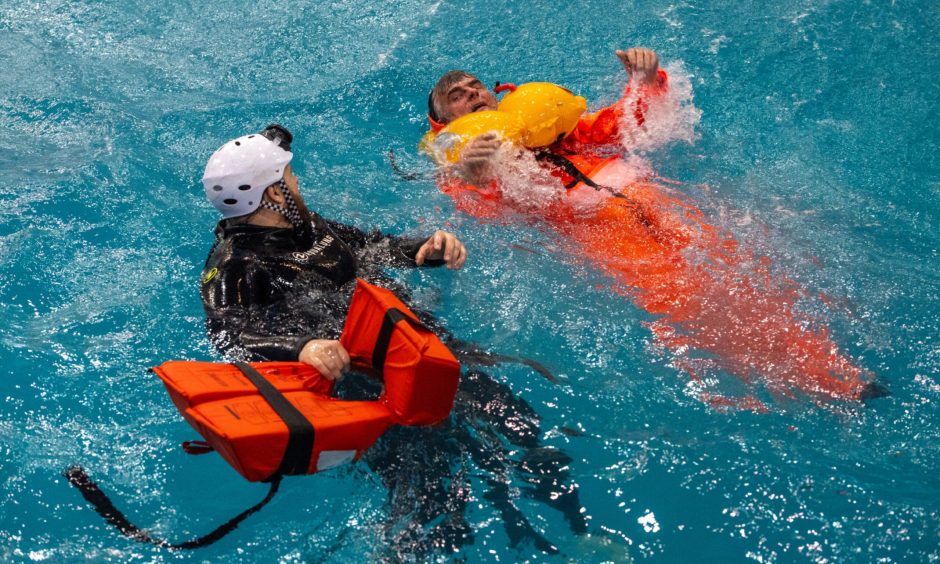
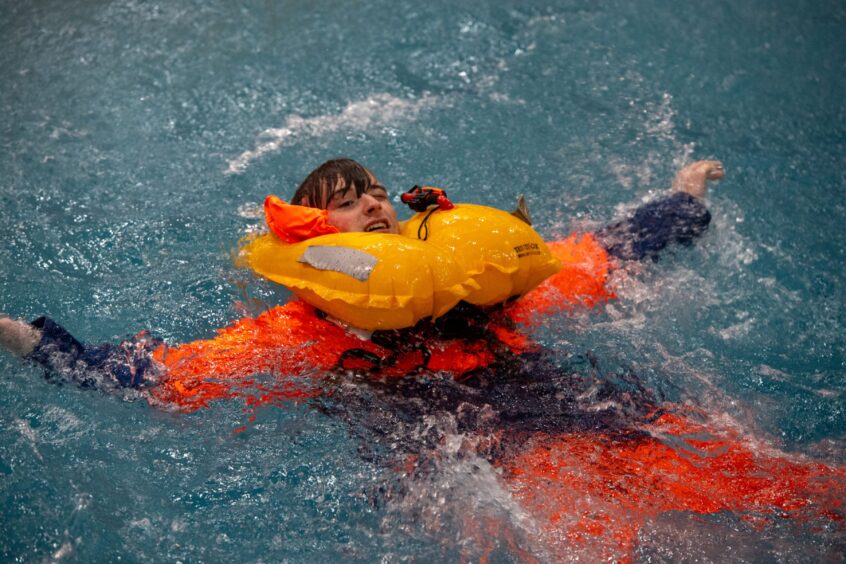
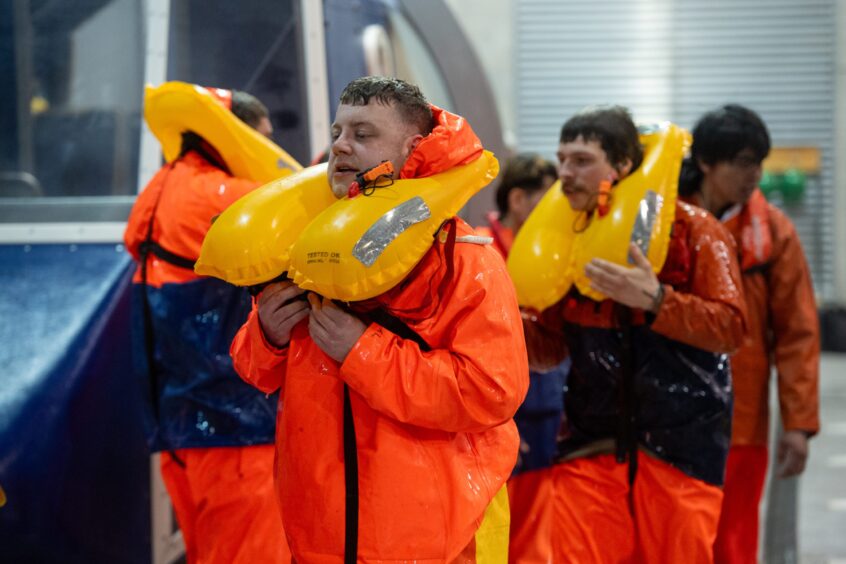
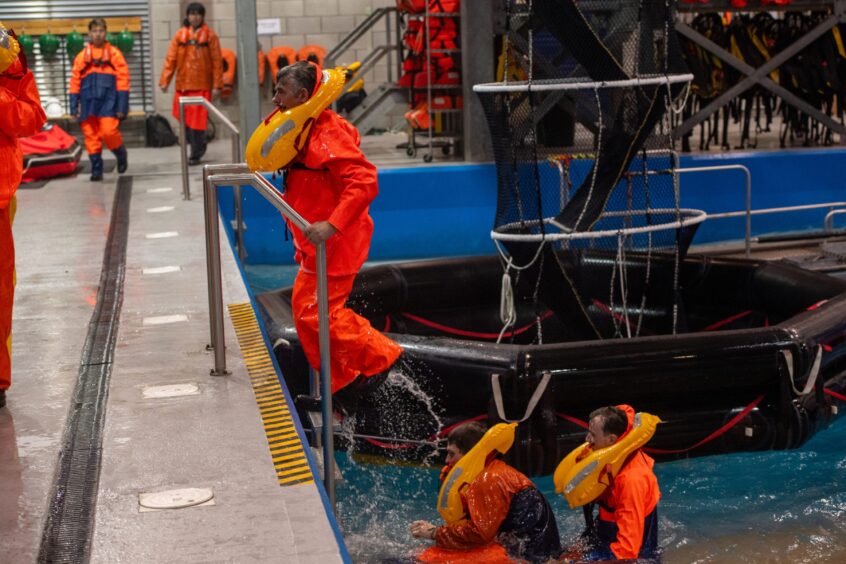
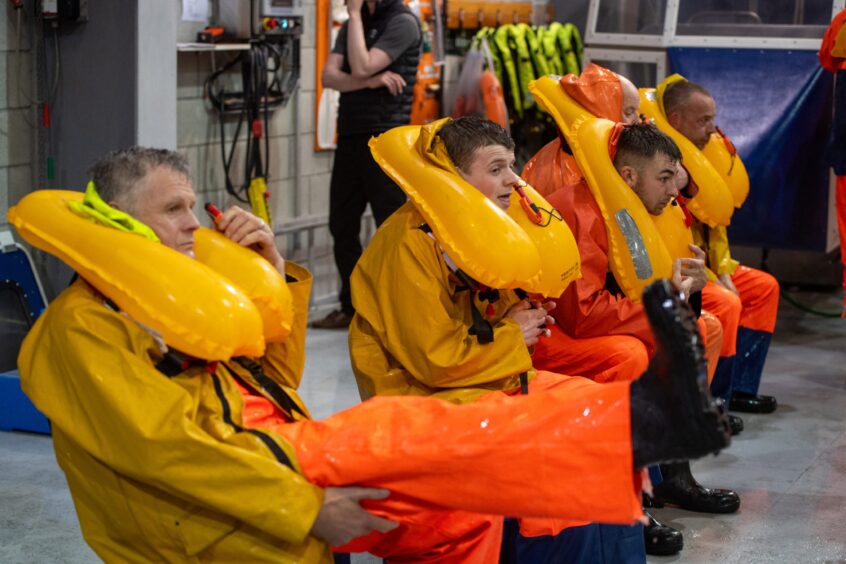
Conversation